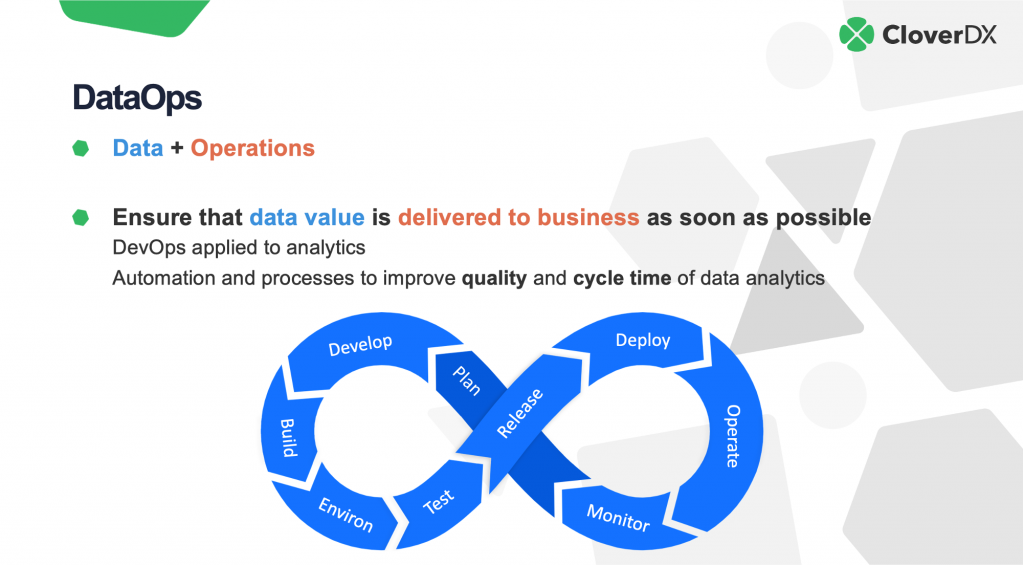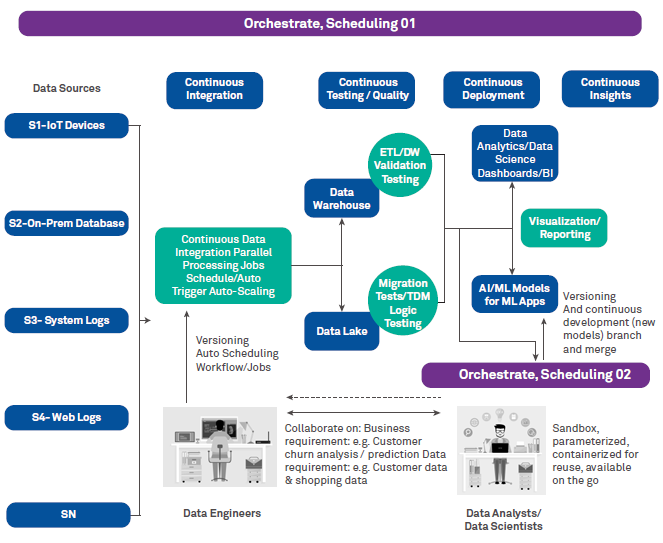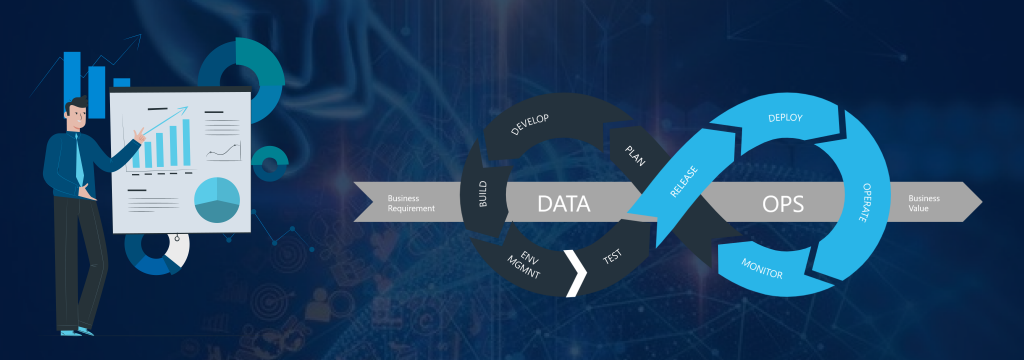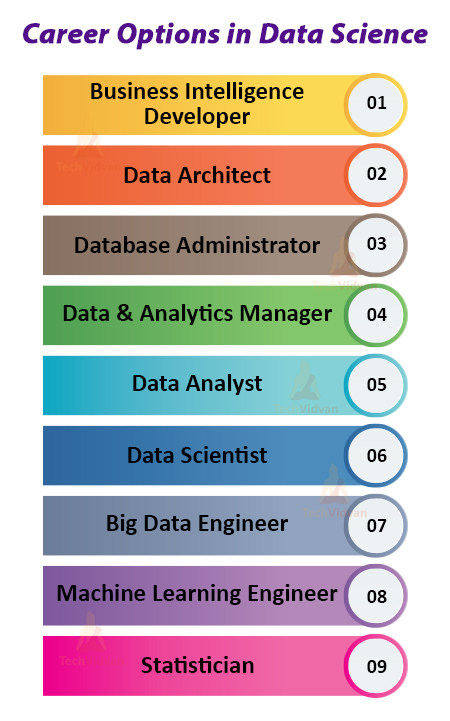Data Ops is a set of practices and technologies that operationalize data management and integration to ensure resiliency and agility in the face of constant change. It helps you tease order and discipline out of the chaos and solve the big challenges to turning data into business value.

Section of this post
- Origin & Evolution of DataOps
- What is DataOps?
- What Problem is solved by DataOps?
- Why Do we need DataOps
- How to implement DataOps?
- How DataOps Works and Architecture?
- What are top tools of Dataops?
- Advantage & Disadvantage of DataOps
- Roles & Responsibilties in DataOps?
- Future of DataOps in Software Engineering?
- Carrer Scope in DataOps
Origin and evolution of data base:
- Databases
- Integration
- Data to process orchestration
- Data policy deployment
- Data and model integration
- Data security and privacy controls
What is data ops?
- Communication & Collaboration. Data Ops methodology encourages communication and collaboration between data engineers, developers, and operations personnel.
- Automation. Like DevOps, Data Ops promotes using advanced technology solutions to automate the data management and operations processes while incorporating appropriate governance controls.
- Culture. The engineering process is Agile, driven by collaboration and rapid use of technology to automate repeatable processes. In a Data Ops environment, data is considered a shared asset, So, any data models must follow the end-to-end design thinking approach
What problem is solved by data ops ?
- Limited collaboration
- Bug fixing
- Slow responses
- Goal setting
- Efficiency
Why do we need data ops?
Data Ops helps you tease order and discipline out of the chaos and solve the big challenges to turning data into business value. It is a set of practices and technologies that operationalize data management and integration to ensure resiliency and agility in the face of constant change.
Manual processes:

How to implement data ops?
Data Ops is born to answer three main challenges invariably faced by companies launching data initiatives:
- Challenge #1 – Cohesion between the teams
- Challenge #2 – Process efficiency
- Challenge #3 – Diversity of technologies
Loop #1 – Sandbox
Loop #2 – Staging
Loop #3 – Production.

How Data Ops works and Architecture?
The Data Ops architecture contains support for environment creation and management.
This enables separate development, test, and production environments, which in turn support orchestration, monitoring, and test automation. This enables the architecture to work across heterogeneous tools and system

What are the top tools of data ops?
- K2View Data Fabric. K2View. K2View provides an operational data fabric dedicated to making every customer experience personalized and profitable.
- High Byte Intelligence Hub. High Byte.
- Tengu. Tengu.
- Superb AI. Superb AI. …
- Unravel. Unravel Data. …
- Delphix. Delphix. …
- Zaloni Arena. Zaloni. …
- StreamSets. StreamSets.

Advantage and Disadvantage of data ops ?
| Advantages | Disadvantages |
| Data team lead | Blurry term |
| Data engineering | Mastering of data science is near to impossible |
| Data scientist | Large amount of domain knowledge is required |
| Data analyst | Problem of data privacy |
Roles and Responsibilities of Data ops ?
- Data specialists, who support the data landscape and development best practices.
- Data engineers, who provide ad hoc and system support to BI, analytics, and business applications.
- Principal data engineers, who are developers working on product and customer-facing deliverables.

Future of data ops in software Engineering:
The data ops engineer provides data engineers with guidance and design support around workflows and information pipelines and flows, code reviews, all new processes and workflows around utilizing data.
Data Ops engineers and data engineers are often conflated, but they have separate, distinct responsibilities. Take a look at what differentiates the emerging role.


Career scope in data ops:
The role of a Data Ops engineer is slightly different from that of a data engineer. The Data Ops engineer meticulously defines and manages the environment in which the data is developed.
- Test automation
- Creation of code repositories
- Framework orchestration
- Collaboration and workflow management
- Lineage and impact analysis
- Data preparation and integration

Reference
- What is DevOps?
- DataOps Certifications
- DataOps Consultants
- DataOps Consulting Company
- Best DataOps Courses
- Best DataOps Tools
- Best DataOps Trainer
- Best DataOps Training

 Starting: 1st of Every Month
Starting: 1st of Every Month  +91 8409492687
+91 8409492687  Contact@DevOpsSchool.com
Contact@DevOpsSchool.com
